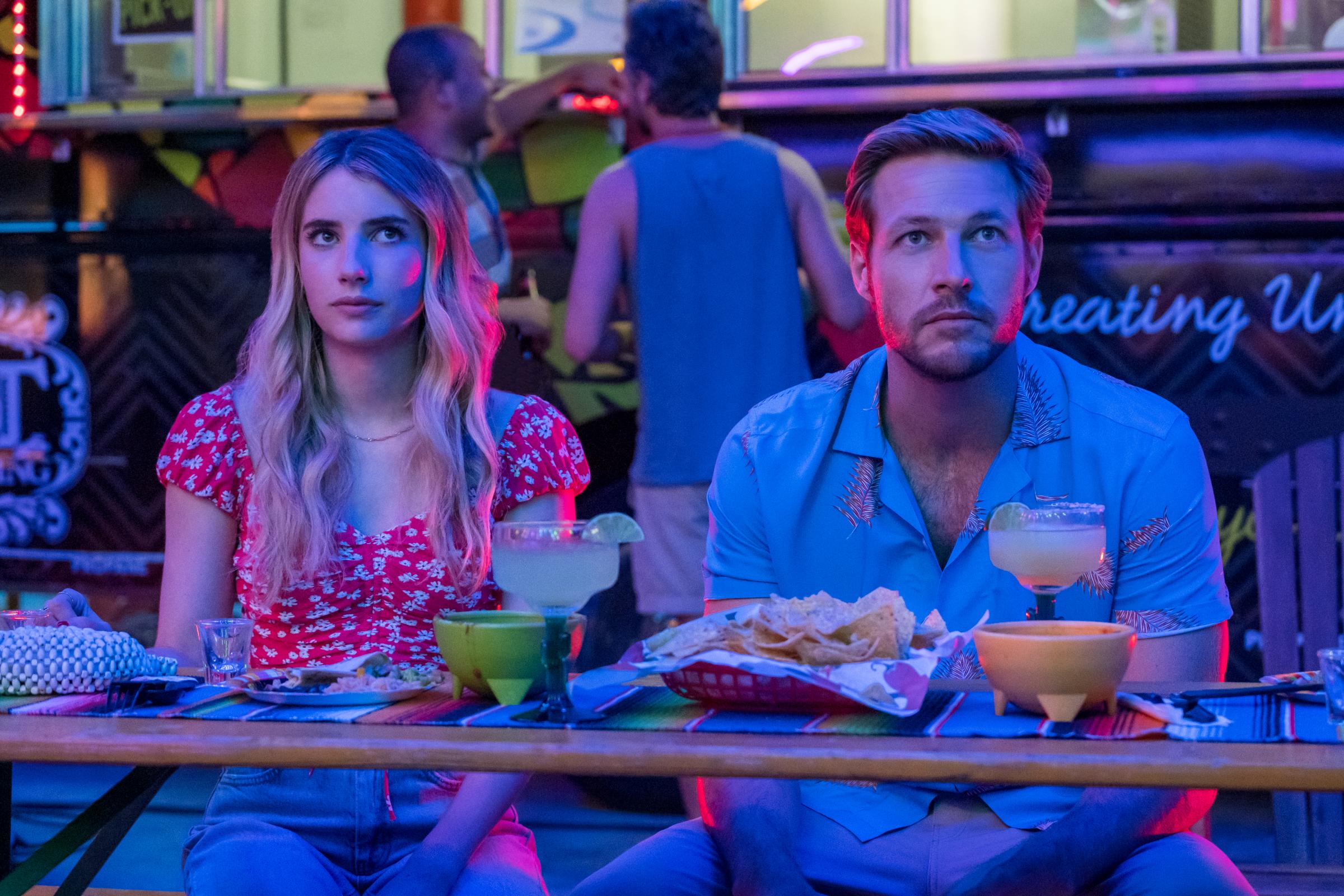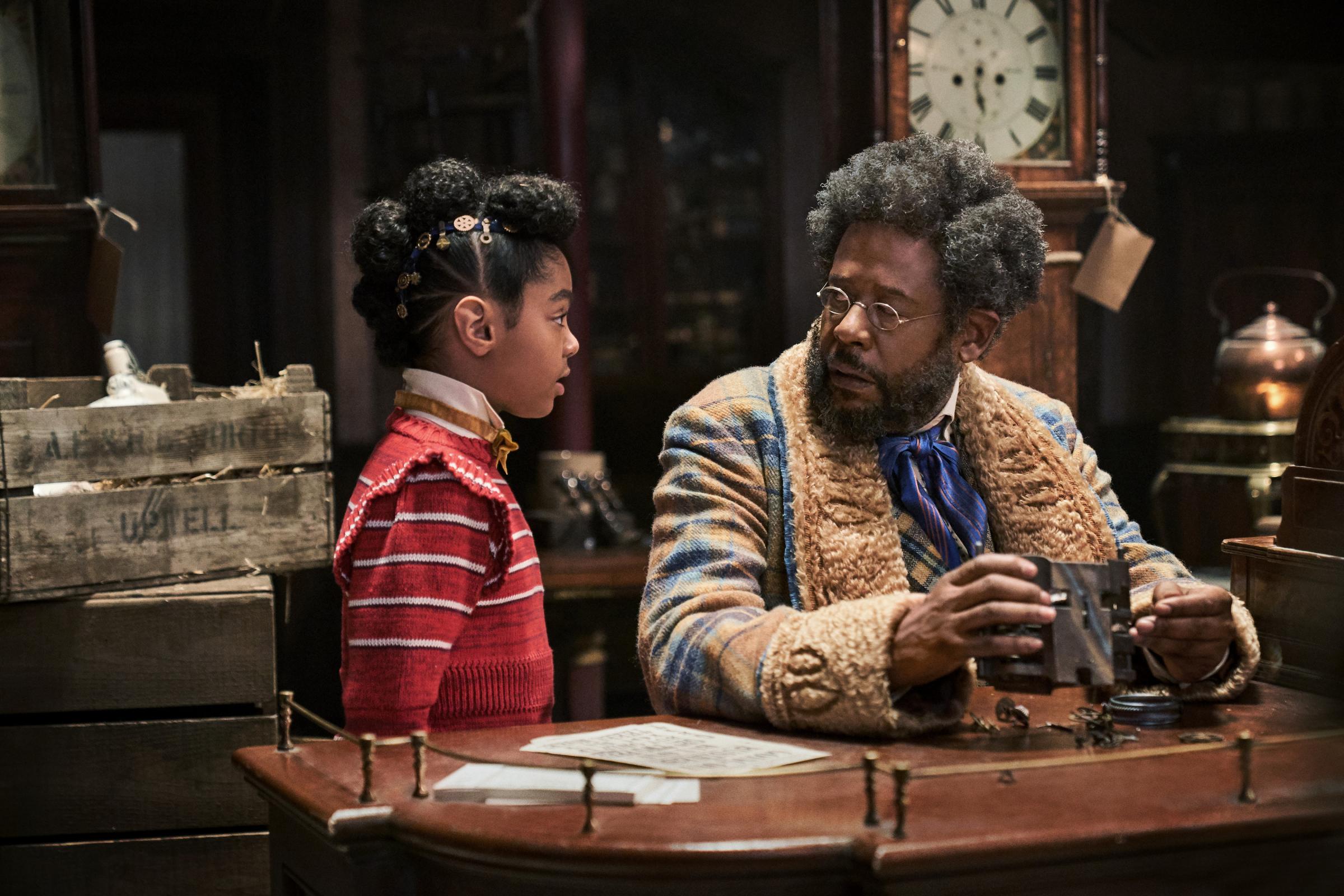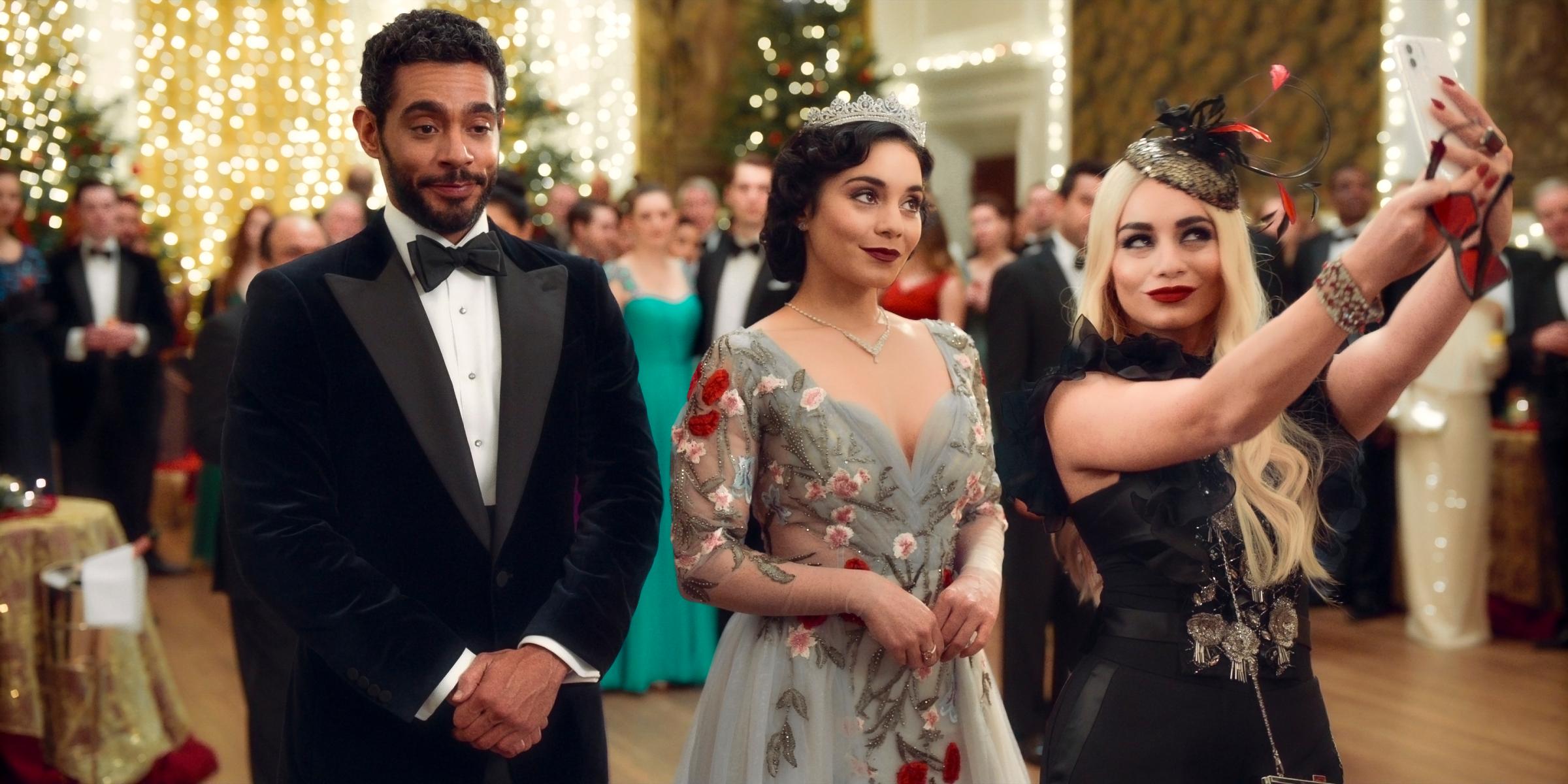This story was originally published in 2020. We're republishing it as the 2024 holiday season kicks into gear, with many new offerings in the same vein hitting the streamer.
It’s official: our brains are fried. The holiday season is stressful enough in normal times. But this year, what we wouldn’t give to have that normal level of present-buying, cookie-baking, tree-decorating stress, instead of all this 2020-specific heartache, anxiety and exhaustion. It’s enough to make you want to line up a bunch of Netflix Christmas movies and gaze upon them, one after another, with reckless disregard for alleged quality or degree of believability. In fact, the less realistic, the better. A Chicago cupcake baker—who bears an uncanny resemblance to the duchess of a phony European nation—falling in love with a prince? Calgon, take me away.
By no means does Netflix have a monopoly on the brain-candy Christmas movie; these have been Lifetime and Hallmark Channel staples for years, and it’s likely that even people you’d never suspect harbor a secret favorite or two. (Hallmark’s The Nine Lives of Christmas, from 2014, involves cats and a fireman played by Brandon Routh. Probably only about eight people have seen that one.) But Netflix, in addition to flooding the market with original movies, makes it numbingly simple to watch one of these films after another, with barely a flick at your trackpad. You can stack up Holidate (an unsentimental Emma Roberts lines up Australian hottie Luke Bracey as a boyfriend for holidays only), Jingle Jangle: A Christmas Journey (a lively, if overlong, musical fantasy about an eccentric toy inventor played by Forrest Whitaker) and The Princess Switch: Switched Again—a sequel to the 2018 sensation featuring Vanessa Hudgens as the aforementioned duchess-doppelganger baker—all without having to leave the bathtub, unless you need to refill your wine glass. Once you’ve jetted through those, you can shimmy over to Alien Xmas, The Christmas Chronicles: Part Two, or any number of Christmas-themed offerings from earlier years. You could always just watch A Christmas Prince—or either of its two sequels—again.
Read more: The Best Christmas Rom-Coms of 2019
I know what you’re going to ask next: Aren’t these movies bad? Shouldn’t I be embarrassed about watching them? My answer to the second question is no, because how we respond emotionally to visual information is not an arena for shame or judgment. Does that mean that there are more beautifully made and wonderfully acted Christmas movies beyond these? Of course. I would not trade Ernst Lubitsch’s 1940 Shop Around the Corner—for my money the most beautiful, bittersweet holiday romance—for the lot of them.
But then, because of that film’s rare beauty, I don’t expect many other films to measure up, and that sense of discernment is freeing, not restrictive. When you watch movies for a living, people often ask if you can turn your my brain and just watch a movie for fun. The general answer is no, because for me, thinking and watching simultaneously is fun. But thinking can be multihued. It’s possible to give yourself over to a movie even when it’s written in lingo you’ve seen many times before—to note how pretty a castle looks when it’s surrounded by snowy trees, to admire a fairy-tale character’s colorful wool coat, to succumb to the unsurprising surprise of two allegedly mismatched characters bumping into each other beneath the mistletoe—without scolding yourself for what gives you pleasure. The line between a cliché and a cherished convention is often so slim it’s almost undetectable.

So what awaits you in the Christmas 2020 Netflix queue? Holidate works too hard at being raunchy, but I happen to have a soft spot for Emma Roberts and her resolute eyebrows. Plus, you’ve got Luke Bracey as a ridiculously good-looking manly-man golf pro with a surprisingly sensitive side. You may as well be eating ice cream right out of the carton. Jingle Jangle—a holiday fantasy aimed at kids, but not bad for adults—is quietly radical in its mostly Black cast. It’s a switch from the norm that underscores how misguided those norms are in the first place. Plus, the costumes (by Michael Wilkinson) are a delight, a riot of Victorian and steampunk silhouettes rendered in traditional Kente cloth and African wax prints.

But for pure candy-box escapism, the prize goes to The Princess Switch movies, with Vanessa Hudgens playing at least two different versions of Vanessa Hudgens. In the first Princess Switch, she’s the perky Chicago baker, Stacy De Novo, who, while attending a baking competition in the picturesquely phony European nation of Belgravia, discovers that she’s a dead ringer for svelte and elegant Lady Margaret, a royal denizen of the nearby and equally phony European nation known as Montenaro. Lady Margaret is engaged to be married to the Prince of Belgravia, the kind but seemingly bland Edward (Sam Palladio). Unfortunately, she’s just not that into him. Meanwhile, Stacy’s best friend and business partner, the totally hot and adorable Kevin (Nick Sagar), has a crush on her that’s been unrequited for years; Stacy loves Kevin platonically, but doesn’t feel any sparks. Margaret, bound by her royal duties, longs for more spontaneity; Stacy wouldn’t mind being a fancy royal for a day or so. And so the two switch identities, only to discover that one woman’s rejected beau is the other’s dream match. The movie ends with one royal wedding and a hint at a future engagement. Everybody goes home happy.
In The Princess Switch: Switched Again, Lady Margaret is about to be crowned Queen of Montenaro. Sadly, her acquiescence to royal duty has broken up her romance with Kevin (though you know that’s not going to stick). Enter Margaret’s bad gal cousin Fiona (played by—surprise!—Hudgens again), a party girl with a peroxide tumble of tresses, who favors tacky clubwear and faux furs in tones not found in nature. Fiona hatches a scheme to impersonate Margaret and thus become Montenaro’s monarch. Chaos ensues, though romance prevails.

If nothing else, how can you not love the idea of fictional countries with names that sound borrowed from 1960s sportswear companies? The Princess Switch and its followup are so indefensibly enjoyable they need no defense. Recently, over socially distanced lunch with a friend, I found myself regaling him with a highly animated summary of the first movie’s plot. “Oh. It’s Shakespeare,” he said, between bites of sandwich. (It’s also a device Mark Twain put to use in The Prince and the Pauper.) Stories of swapped identities, of one character being mistaken for another and causing mischief, or falling in love, are nothing new, and they were invented by people with good instincts for what human beings like. Our consistencies unite us across eras.
If you were to break the Princess Switch movies down to their barest elements, they could almost be performance art—big squares, circles and triangles that speak in ways that defy words. These are movies written in flag language, semaphore that can be read clearly from a great distance. Switched Again ends with (spoiler alert), a wedding, a reconciliation and a coronation, all of which tap out a code that our wilted minds receive gratefully. We may think our brains aren’t working, but they are; they’re experts in the art of the busman’s holiday. Love, forgiveness, the beauty of a sparkly gown: These are oversized signals, easy to read and comprehend from a great distance, reaching out to us as we watch from our respective isolated islands, or bathtubs. If they were good enough for the Elizabethans, they’re good enough for us.
More Must-Reads from TIME
- Donald Trump Is TIME's 2024 Person of the Year
- Why We Chose Trump as Person of the Year
- Is Intermittent Fasting Good or Bad for You?
- The 100 Must-Read Books of 2024
- The 20 Best Christmas TV Episodes
- Column: If Optimism Feels Ridiculous Now, Try Hope
- The Future of Climate Action Is Trade Policy
- Merle Bombardieri Is Helping People Make the Baby Decision
Contact us at letters@time.com